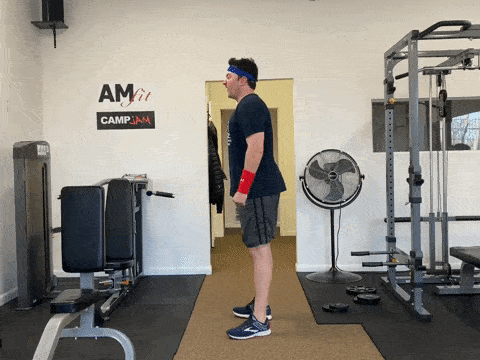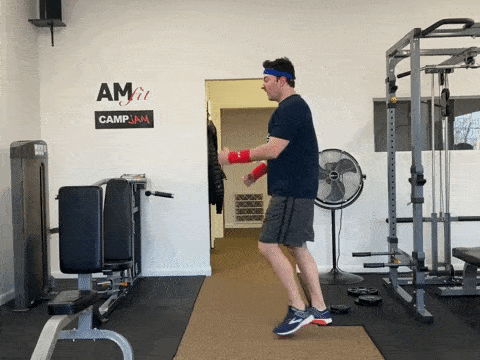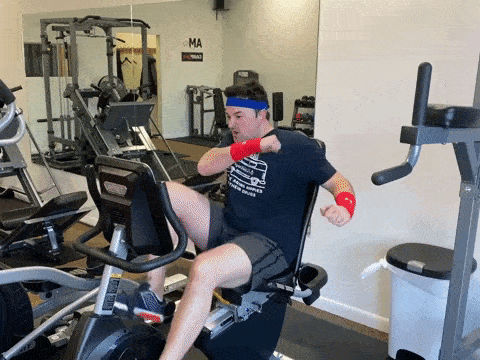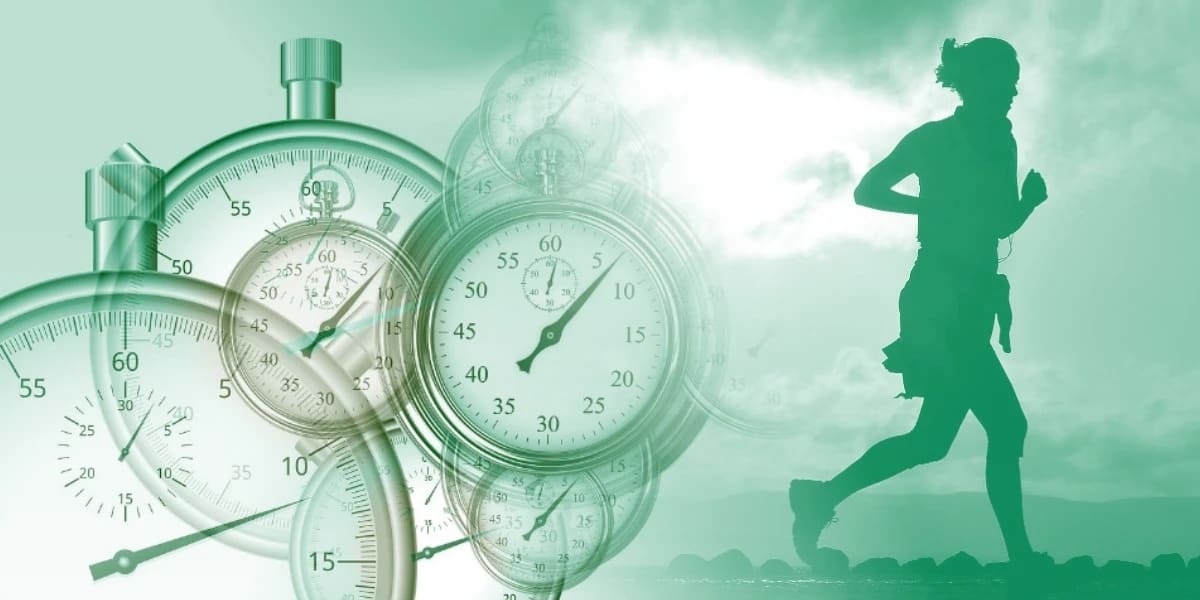New year, new beginnings… at least that’s what the marketing machines in the wellness space tell us. There is no absence of advice on how to proceed every January. Typically, creating this “new you” involves spending more money on gym memberships, supplements, and consultations with “experts.”
We’re all very aware that most of the moves people make in January don’t stick for an entire year, let alone their whole lives. Hundreds of dollars (if not more) later, we’re no better than when we began. In fact, we can end up more frustrated than ever.
I believe that you can make 2020 the year that your most sustainable, healthy practices get put into place. You don’t need money, equipment, or things. It’s just you and sixty minutes—and it doesn’t even have to be all at once!
How do I know? Evidence. Each of these items I suggest have solid evidence proving an improvement of physical AND mental health. Beyond these boring end results, you’ll just feel better about yourself and your day.
Besides this, I practice what I preach. I’ve implemented these three activities, totaling 60 minutes only, in my life as minimum requirements for my day. I’ve never felt better.
In fact, I’ve even got video proof below that I do these things each day.
Here is how just sixty minutes a day can radically change your life – for free.
1: Meditation – 15 minutes
The big takeaway: Spending 15 minutes a day practicing meditation will literally rewire your brain for the better after just 8 weeks.
If you’re following me personally or professionally, you know that meditation and mindfulness have changed my life.
I was in a constant state of anxiety. The symptoms were intense for me. They mimicked a heart attack—chest pain, jaw numbness, and radiating pain down my left arm. Four weeks with my mindfulness-based cognitive therapist and I was able to start a slow withdrawal after 10 years of Lexapro.
I’ve written about it in our Mindfulness and Meditation blog. I brought my therapist, Dr. Lawrence Dresdale, on the podcast to talk about the “Crazy Person” in your head. Very recently we spoke about resolutions on the first episode of 2020.
I list these references to help you get started with a REAL meditation practice. I say real like that because meditation is trendy these days, and there’s lots of bad advice and misperceptions around meditation that need to overcome to get the biggest benefit.
I won’t make you read the whole article or listen to the episodes, though. I’ll give you the quick and dirty.
Meditation is NOT about emptying your mind or keeping it still. In fact, it’s the opposite. Our minds normally WON’T rest easily. Meditation is just training your mind to refocus once you realize your thoughts are drifting.
Meditation is simple. It’s the practice of focusing attention on a single point, like your breath leaving the end of your nose.
When your mind starts the chatter, you’ll get distracted and follow the thoughts, losing focus. No big deal. Meditation is acknowledging your lost attention and refocusing back to your breath.
When you do this, you don’t beat yourself up. “I suck at meditation.” “I can’t keep my focus.” Judgment free.
The cycle of successful meditation is focusing on your breath, acknowledging without judgment the loss of focus when it inevitably happens, and then returning to the breath.
Meditation is not easy. We’ve had thoughts since the day we’re born. We’ve had A LOT of practice managing the chatter “incorrectly” over the years. It will take time to make real strides, but consistent practice will be, without hyperbole, life-changing.
Meditation helps you relax. We need that these days – at a national level and an individual level. More importantly, meditation teaches us a new reflex. Instead of falling down the rabbit hole of negative or positive thoughts, meditation teaches us to “catch ourselves” and refocus on being present.
Being stuck in your head with good or bad thoughts takes us away from experiencing our lives fully.
To start your 15 minutes of meditation, don’t try to do it in one block. Start with 5 minutes 3 times a day: right when you get up, after work (to destress), and before bed.
As you make this a healthy habit, move to a single 15-minute session if you can. Or don’t. No judgment. Just try to do it each day.
2: Exercise – 30 minutes
The big takeaway: Exercise doesn’t require gyms, and simple exercises can be done in no time at home that will have a big benefit on your health for years.
“Didn’t you say no gym memberships?” You bet I did. Prisoners don’t need a nice gym membership and they’re huge. At least they are in the movies. They don’t even need weights and all of that.
I’m not saying that the strategy is to get a jumpsuit, run from a bigger guy with a shiv, or go on a horrible slop diet. I’m saying that for 2020, I want you to exercise like a convict. Except you don’t get to stab someone first.
Convicts often do bodyweight exercises that require no additional weight or gear. It can be done from the comfort from a 5×10 space.
Thirty minutes of exercise may seem like an eternity. It’s not. Thirty minutes will blow by with just 5 basic exercises, demonstrated below by me in my excellent workout gear.
Here’s what I’d like everyone to do minimally to get physically fit:
Stretch – most of us are not flexible. Spend 1 minute with a basic stretch routine every day, preferably after you wake up. No video for this; you don’t need to see me hunched over 🙂
Squats

Do 8 using just your body weight. Wait about 60 seconds, then do it again. Do 3 total ‘sets’ as the gym rats say and you’ve already got 7-8 minutes done.
Lunges

Find a space where you can do a ‘lunge lap’, meaning walking while lunging out. We want you to do 5-8 for each side, or 10-16 total. If you’re limited on space, strength, or balance, do them in place with proper support. I’d love it if you can do that twice (with a 60-second break in between). You’re at about 8 minutes with this as well.
Planks

Set a 30-second timer and do 3 sets of planks with a 60-second break in between each.
Walk, bike, run

For the rest of the time, which is 10 minutes or less, just do some light cardio.
You don’t need sweet headbands or a special space for any of this. You have everything you need to incorporate a basic physical fitness routine into your day.
The amount of time is truly minimal. The effort is just enough to create a baseline strength for normal daily activities.
These exercises build your core and big, supportive muscles to ensure you stay strong at all decades of life!
3: Planning Your Day – 15 Minutes
The big takeaway: Spending a few minutes planning your day and reviewing your progress will eliminate surprises, stress, and worry while keeping you paced towards goals.
The last 15 minutes of the sixty minutes that will change your life is, without a doubt, the most important. I believe it will help most people, even more than meditation, and you know how strongly I feel about that.
We live extremely “busy” lives. As a result, we normally swing from one stressed-out, impulsive decision vine to the next.
No one has time to think about what we’re going to eat. As a result, we eat garbage when we’re overly hungry. Your energy levels dip, your mental clarity slips away, and you get a little testy.
If you joined us for our Nutrition Webinar, or even read our popular Dietary Jenga article, you know that we stress planning as priority-one with any new nutritional plan. It’s the one part rarely discussed in the media; we’re too busy arguing over what to eat to focus on how to eat.
Our psychological connection to food matters most and that must be explored. If you don’t plan, you’ll make hasty and unhealthy decisions. I’m as guilty as the rest.
Here’s what I propose: plan your day every day, with a special focus on what you’ll eat.
Step 1 – Review Today (5 minutes)
At the end of each day, before you turn on your iPad to learn how close we are to World War 3, take 5 minutes to review what you did today.
Make an easy list with 3 spots: Good, Bad, and Ugly. Write in the good stuff you got done, bad stuff that came up or went wrong, and the plain old ugly you don’t want repeated.
Let’s call the three practices of meditation, exercise, and planning your “core responsibilities.” Use the review to hold yourself accountable to them. Did you do your 15 minutes of meditation? Did you get in your 30 minutes of exercise? If not, there’s no time like the present. Time to get them done.
Step 2 – Plan Tomorrow (5 minutes)
After you’ve recapped your progress for today, it’s time to get your to-do list ready for tomorrow.
Get a list going of all the projects you’re working on and all the things you want to accomplish tomorrow.
Protip: Pick 1 thing you want to get done to 100% that will make you feel like the day was a success. Pick 2 “bonus” things that, if done, will make you feel like this:

Check your calendar for any appointments or to do for tomorrow or upcoming days so nothing surprises you.
Any items you didn’t get done today that you’ve picked up on your daily recap should be added to your tomorrow list.
Most important, though, is to think about for a minute or two at least, what you’re going to eat tomorrow. Write down your breakfast, snack, lunch, snack, dinner, and snack for the next day. If you do those two each night, then your last 5 minutes of planning will be a breeze
Step 3 – Today’s Plan Review (5 minutes)
At the start of each day, set aside 5 minutes to look over your plan for today and set it into motion.
Gather up your healthy snacks and lunch you planned out yesterday.
Think about that main to-do item. Get that off your list ASAP. Plan when you’ll do your core responsibilities.
The goal is to have a strong idea of what you need to make your day successful. Fifteen minutes of planning total each day will allow you to wake up each day with your to-do list, ready to rock.
I Just Need Ten More Minutes Of Your Time
No, the rest of this article will not be ten minutes long.
Before we implement any of these core responsibilities, I need a single, short burst of time from you. Even if you decide that you’re not going to follow the advice of this article, the ten minutes I’m asking for here will be monumental for a healthy 2020. I really need you to do this; just give me ten in exchange for laughing at me trying to exercise.
For ten minutes, I need you to sit quietly and think about your day yesterday. What did you do?
Really think. Be honest, be detailed.
Here’s why I need you to do this: sixty minutes seems like too much time for many people. “Where am I going to get an extra hour from!”
The number of people who truly don’t have enough time to at least meditate and plan/review their next day is teeny tiny.
I’d argue most people have 2-3 hours of wasted time each day, occupied with distractions and unhealthy practices. We waste too much time playing Farmville or Snood on MySpace in dozens of 5-10 minute bursts throughout the day. That’s a modern, timely reference, right?
I want you to at least identify the true “wastes” of time you have in your day. You don’t have to stop them, you just need to be honest and aware of them.
Again, really think. Take ten minutes right now and identify, on average, how much time is wasted with brainless activity.
I’ll go first. It’s one thing to check out social media, it’s another to constantly scroll. I’m on Reddit for about 1.5 hours each day. I’m beat, typically, and I’m doing it to just get some lazy enjoyment. I’m not saying brainless activity isn’t needed. I’m saying that 15 minutes or so of brainless activity is probably enough.
I need you to take ten minutes and identify where you spend too much time doing fruitless endeavors.
For me, Reddit is reasonable for 15-30 minutes max. But nearing 2 hours? Not at all.
Here’s an analogy I’ll leave you with: When you build your budget (whether formally or in your mind), you know what your mandatory, recurring expenses are. You have to pay your rent, electric, and other utilities. No matter what, those bills must be paid, and it would make an ugly mess in short order if you spent your money without first considering these crucial things.
Many of us wastefully spend our budget of time without consideration of what’s important: healthy, daily routines like the core responsibilities I highlighted here.
Planning our meals. Planning our day. Taking time to practice being present. Being physically active to even the smallest degree. These things are important. They are minimum competency for being a human. These are the bills that need to get paid no matter what.
The good news is you don’t need a lot of time, energy, or money to get these things done. The best news is that executing these three items every single day will completely change your stress levels, energy levels, physical capabilities, and much more.
There are 365 short days in this new year ahead of you. Will you take ten minutes to think about how you can easily accomplish sixty minutes of healthy habits in 2020?
Just trying to keep it real…

Neal Smoller, PharmD
Owner, Pharmacist, Big Mouth



